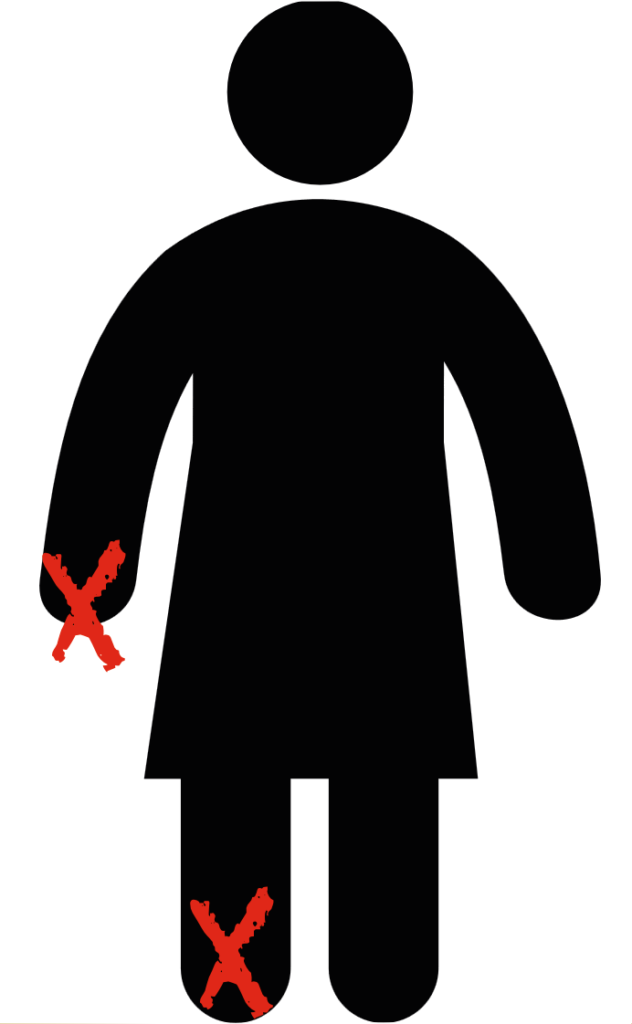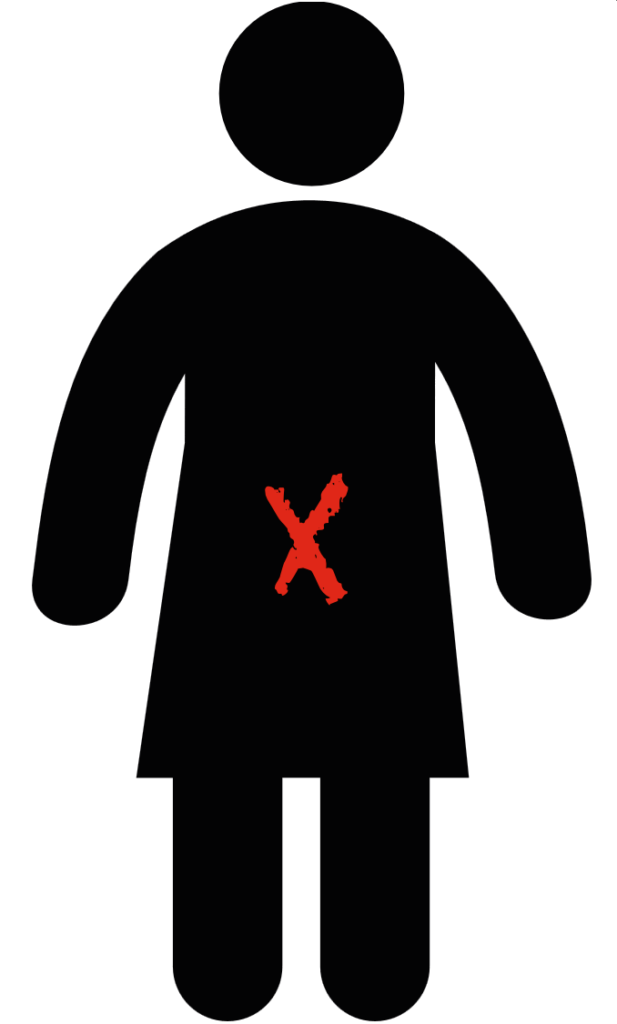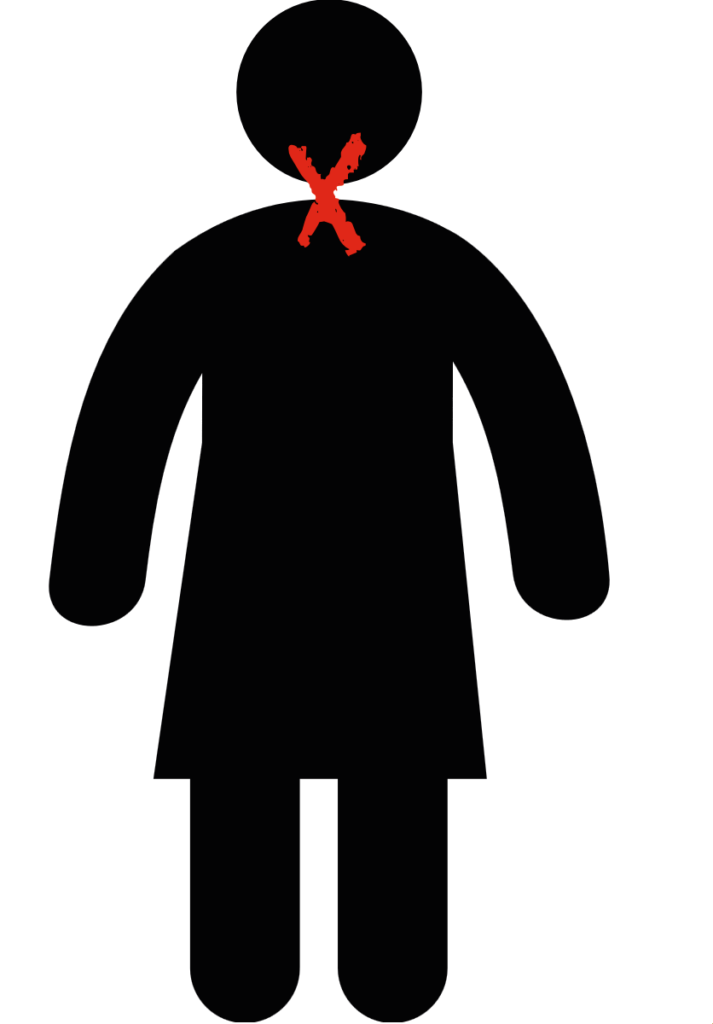HAE patients experience recurrent episodes of swelling in the hands, feet, gastrointestinal tract, genitals and larynx (throat) that can last from two to five days. The frequency of and severity of attacks may vary dramatically among patients, even those in the same family.
HAE-related swelling is NOT the same as swelling caused by allergies and cannot be treated as an allergic reaction. Antihistamines and corticosteroids are not effective treatments for C1 Inhibitor deficiency. About 25% of HAE patients experience a non-itching red rash that often occurs before or during an HAE attack.

Skin
Swelling involving feet and hands can be extremely painful and often disables patients from participating in normal daily activities.

Abdomen
Abdominal attacks are characterized by excruciating abdominal pain, nausea, vomiting, and diarrhea caused by swelling in the intestinal wall. These symptoms are distinguishing features of HAE because recurring abdominal pain is rarely seen in other types of angioedema.

Throat / Airway
Throat swelling / episodes of throat swelling are the most dangerous symptoms of HAE, because they can close the airway and cause death by choking. In fact, studies of HAE families indicate that without treatment, death from laryngeal edema can be as high as 30%. It is important to note that 50% of HAE patients experience at least one laryngeal attack in their lifetime.
It is important to recognize throat swelling is a medical emergency that always requires immediate medical attention at the first sign of symptoms.
